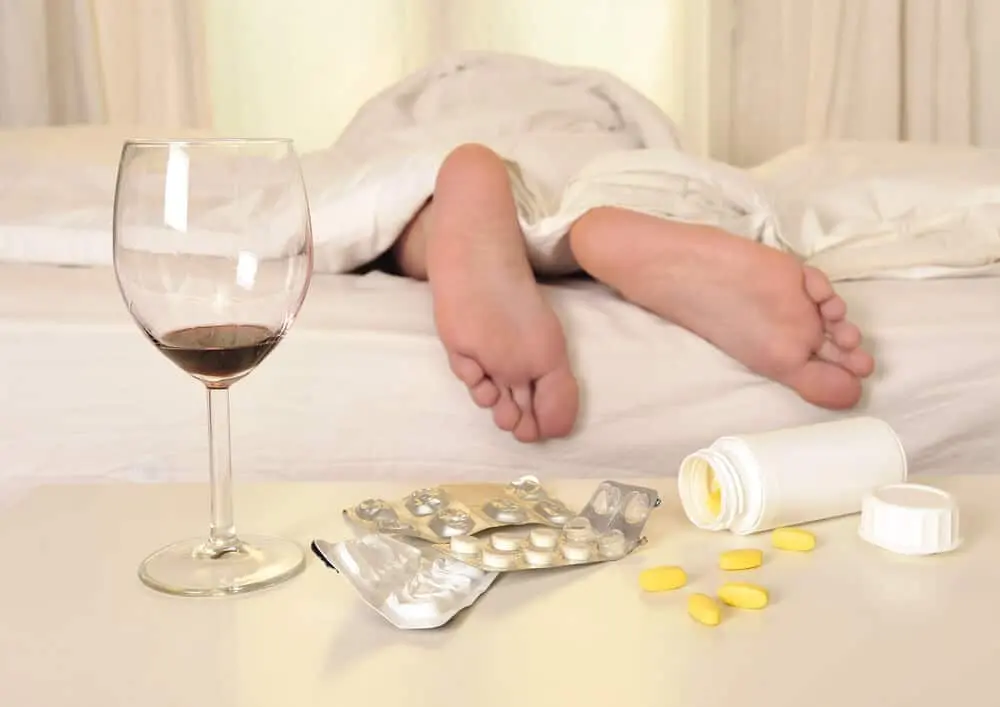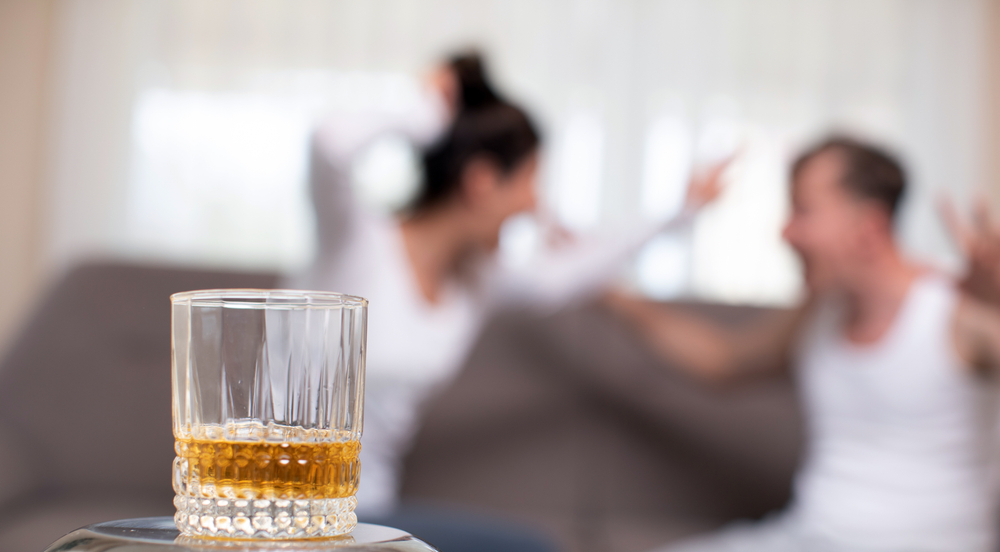Dangers of Mixing Alcohol and Sleeping Pills
Find out why mixing sleeping pills with alcohol is a potentially deadly combination.
Do you use medicine to help you fall asleep, but are unaware of the potentially fatal effects of alcohol and sleeping pills?
In a world where getting a good night’s sleep isn’t commonplace, it may not be surprising to learn that four percent of people ages 20 and old shared they over-use prescription sleep aids, according to the CDC.
And while some of these medications can have a beneficial effect on one’s cognitive and energy output, over-using sleeping pills or mixing pills with alcohol can be extremely dangerous.
There are several types of sleeping pills on the market today, including non-benzodiazepine hypnotics, benzodiazepines, barbiturates, and even over-the-counter antihistamines like Benadryl. Because each of these falls into a different class of drugs, the side effects when mixing sleeping pills with alcohol can vary for each medication.
Even one drink of alcohol can have a negative effect on the body if someone is also using sleep medicine. For example, combining the two can cause dizziness, confusion or even fainting.
You may not be aware that taking alcohol with this medication can actually make insomnia worse, completely negating the entire reason for taking the sleeping pill in the first place.
In addition, alcohol and sleeping pills together can increase one’s chance to sleepwalk, have memory loss, or engage in strange behaviors such as driving a car and having no memory of it.
Plus, mixing these two substances together has been known to increase the risks of blackout periods. It is also crucial to know that sleeping pills and alcohol can have potentially fatal consequences.
Some physical side effects of this mixture include slowed heart rate, slow breathing, difficulty breathing, disorientation, drowsiness, increased risk of overdose, lowered blood pressure, and even death.
If you or someone you love is addicted to sleeping pills and alcohol, know that there is help available. Because both substances can create a physical dependence, there is a chance that withdrawal symptoms can occur when trying to stop.
This is why it is important to slowly wean yourself off of sleeping pills rather than just abruptly stop them. You can also consider withdrawing off of both substances under the care of a medical team and addiction center that can offer dual treatment and help you deal with rebound insomnia that may occur.
Learning about tips and techniques such as cognitive behavioral therapy, relaxation therapy, and sleep restriction can also help combat different withdrawal effects when you are coming off of alcohol and sleeping pills.
You can reach out to Legacy Healing Center to discover a variety of treatment programs that include intensive inpatient and also outpatient options. Outpatient programs are similar to treatment received in inpatient but there is less of a weekly time commitment, and you will have the option of continuing your regular responsibilities such as work, school, or childcare.
Mixing sleeping pills with alcohol is not a safe combination for anyone. Learn how you can stop this addiction before you experience negative health effects.
Reach out to the team at Legacy Healing Center today at 888-597-3547.




